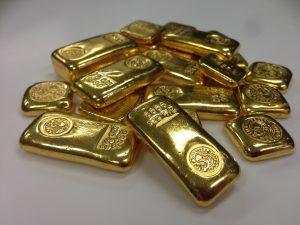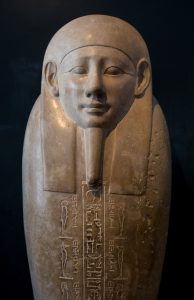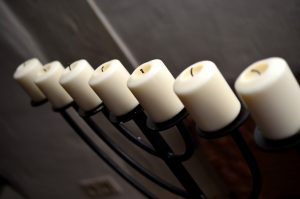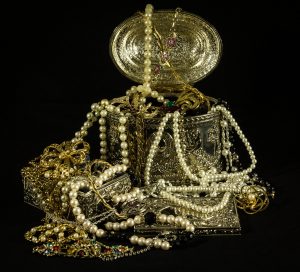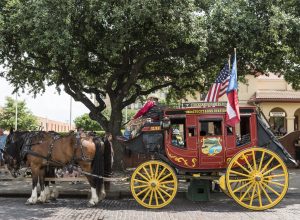It may sound like the stuff of legend, but there really are hidden, buried, missing and forgotten treasures that still haven't been found out there. They're waiting for an enterprising adventurer to come along and find them, and some of them are very valuable indeed.
Are you ready to do some digging?
40. The tsar's eggs
You've probably heard of Fabergé eggs -- expensive enameled and jeweled novelties originally crafted by the designer of the same name. Well, the Russian tsars used to have a tradition of gifting Fabergé eggs to their wives (or mistresses).
When the Bolsheviks overthrew the autocracy in 1917, most of these eggs were gathered up by the new government. However, 7 of them remain unaccounted for, and are among the world's most sought-after hidden treasures.
If you think you stand no chance of finding one, don't be so sure. Back in 2012, a scrap metal trader in the U.S. found one of the tsar's Fabergé eggs on a random shelf in his house.
 Image by A Russian Fabergé egg.
Image by A Russian Fabergé egg.
39. Fenn and now
Forrest Fenn was many things: a collector, an adventurer, an Air Force pilot. And in death, he's the subject of a great mystery.
As a boy growing up in Texas, Fenn once found an arrowhead. The wonder of that experience turned him into a lifelong seeker of antiquities and archaeological curiosities. Instead of simply using his finds to enrich himself, he decided to bury them somewhere in the Rocky Mountains and leave clues for would-be adventurers such as himself. He even wrote a book and a poem, both of which supposedly contain clues as to the whereabouts of the buried treasure, which is estimated to be worth $2 million.
Be careful on your quest, though; at least 4 people have died on the hunt for Fenn's treasure.
38. Custer's last payday
Everyone knows the story of George Armstrong Custer, the American general who was roundly defeated by the Lakota, Cheyenne, and Arapaho Indians at the Battle of Little Bighorn. But few know the story of the treasure that may be buried near where Custer made his last stand.
The whys and wherefores are a little unclear, but at the same time Custer was getting himself and his men killed, Captain Grant Marsh was sailing up the Bighorn River with supplies and reinforcements. And, reportedly, about $375,000 worth of gold bars. When he heard about Custer's defeat, Marsh apparently decided to bury his gold on the bank of the river; otherwise, he wouldn't have been able to take on the extra weight of wounded soldiers.
The treasure still has not been found to this day.
 Wikimedia George Armstrong Custer.
Wikimedia George Armstrong Custer.
37. Mosby's Confederate gold
During the Civil War, Confederate Colonel John Mosby was famous for conducting raids behind enemy lines. On one occasion, he captured a well-heeled Union general who was carrying about $350,000 worth of gold and loot.
Mosby intended to bring his captive and his gold south, across Union lines, but he ran into an opposing force en route and opted to bury his treasure between two trees instead. He marked the tree bark with his knife so he would be able to find his booty when he returned, but he was never able to do so. No one else has proved capable either.
 Wikimedia Colonel John Mosby.
Wikimedia Colonel John Mosby.
36. A buried investment
Leon Trabuco was a Mexican millionaire in the 1930s. With the United States in the grips of the Great Depression, he figured the government would be forced to decrease the value of the dollar in short order, thereby driving the price of gold through the roof. So he and some partners quietly bought up a bunch of gold and smuggled it into the U.S. in the hopes of increasing their already vast fortunes. Since what they were doing was illegal, Trabuco and friends decided to bury the gold somewhere in the deserts of New Mexico.
Unfortunately for these, um, investors, the U.S. outlawed private ownership of large quantities of gold illegal in 1934. As the years went by, Trabuco and his colleagues all died in odd circumstances, taking the location of their own private Fort Knox to their graves.
35. The Florentine diamond
For one of the most famous and valuable diamonds in the world, this one sure has a murky history.
It was unearthed in India and made its way to Europe in the 15th century, where it passed from gaudy monarch to gaudy monarch: the Duke of Burgundy, the Medici, and finally the Austrian Habsburgs. After the defeat of Austria in WWI, the last emperor took the Florentine diamond with him to Switzerland, where he planned to live out his days in exile. But someone managed to steal the diamond from him.
While its ultimate fate is unknown, it was most likely smuggled to South America, recut and resold.
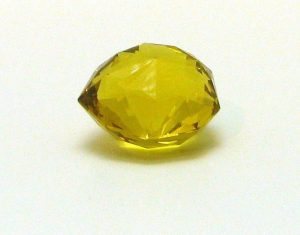 This Wikipedia and Wikimedia Commons image is from the user Chris 73 and is freely available at //commons.wikimedia.org/wiki/File:Florentine_Diamond_copy.jpg under the creative commons cc-by-sa 3.0 license. A glass replica of the Florentine diamond.
This Wikipedia and Wikimedia Commons image is from the user Chris 73 and is freely available at //commons.wikimedia.org/wiki/File:Florentine_Diamond_copy.jpg under the creative commons cc-by-sa 3.0 license. A glass replica of the Florentine diamond.
34. The Patiala Necklace
This fabulous necklace was crafted by Cartier for the Maharaja of Patiala in India. The original contained 2,930 diamonds.
As you can imagine, such a tempting prize attracts thieves, and the Patiala necklace was stolen just 20 years after it was made. Part of it was found in a UK thrift shop in 1998, but the majority of the necklace has never been recovered. (Though it must be said that circumstantial evidence suggests it's somewhere in Great Britain -- like most of India's wealth.)
 Wikimedia The Patiala necklace.
Wikimedia The Patiala necklace.
33. Menkaure's sarcophagus
Menkaure was a pharaoh of ancient Egypt who died around 2,500 BC. His pyramid is the smallest of the three famous monuments at Giza, and so his tomb was an obvious target for excavation in the 1830s. His ornate, priceless sarcophagus was duly removed by a British army officer and explorer and shipped back to England.
Unfortunately, the ship carrying the relics of Menkaure sunk on its journey, taking all the king's treasures into the deep. One of these days, someone is going to get super famous for finding his sarcophagus.
32. The Lima treasure
The Spanish conquest of the Incas in the 16th century was extremely profitable. Over the centuries, the Catholic Church collected untold wealth from Spanish colonies in South America. Perhaps the greatest such cache of riches was stored at the city of Lima, in modern day Peru.
But by 1820 the Spanish empire was in decline, and Lima was on the brink of a revolt. The prefect of the city therefore entrusted this great treasure to a sailor from Newfoundland named Captain John Thompson. He and his men were meant to take all that Spanish gold north to Mexico for safekeeping.
Instead, and somewhat predictably, Thompson and his men proved unable to resist the temptation of so much treasure. They cut the throats of their Spanish guards and sailed away with their ill-gotten gains. Thompson and his pirates buried the treasure in the Cocos Islands off the coast of Costa Rica, planning to keep a low profile and return when the heat died down.
Alas, Thompson and company were captured. Every man was hanged save Thompson and his first mate, who saved themselves from the noose by promising to lead the Spanish authorities to the stolen treasure. But when they were brought to the Cocos Islands, both men escaped and ne'er returned.
The Lima treasure is estimated to be worth more than $200 million today, and it's still out there waiting for you.
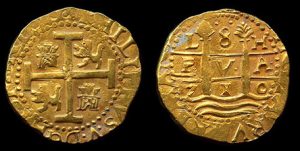 Augi Garcia/Wikimedia A small piece of the Lima treasure.
Augi Garcia/Wikimedia A small piece of the Lima treasure.
31. The will of Amaro Pargo
Amaro Pargo was a Spanish pirate of the 1700s. Actually, he was more a privateer -- a sort of state-sponsored pirate who made a name for himself harassing Spain's enemies in the Atlantic.
When Pargo died, he had written in his will of a chest containing many of his most valued treasures: gold, silver, fabrics, pearls, porcelain. Sadly, to this day, no one has ever been able to find Pargo's treasure. Maybe the old corsair was just trolling all posterity. If so, well played.
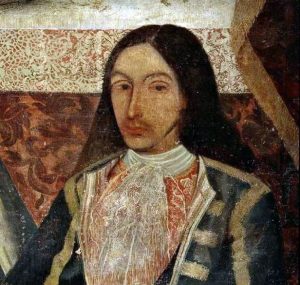 Wikimedia Amaro Pargo.
Wikimedia Amaro Pargo.
30. Cassidy's legacy
There's not much need be said about Butch Cassidy. He was one of America's most famous outlaws, along with his gang the Wild Bunch and his friend Robert Redford.
Before Butch and Sundance fled the U.S. for South America, they buried $20,000 somewhere in Irish Canyon in Colorado. That might not be as big a pay out as some of the treasures on the list, but how cool would it be to find a piece of Butch Cassidy's legacy?
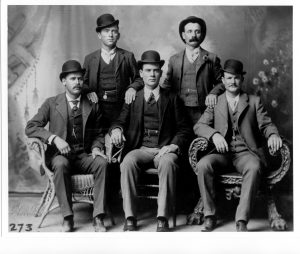 Flickr Butch Cassidy (seated, far right), and the Wild Bunch.
Flickr Butch Cassidy (seated, far right), and the Wild Bunch.
29. Flower of the sea
The Portuguese nobleman Alfonso de Albuquerque was returning from Southeast Asia on his ship the Flor de la Mar. He had just participated in the conquest of Malacca (Malaysia), and his boat was weighted down with treasures to impress the Portuguese court. Perhaps that's why it sank off the coast of Sumatra. In true aristocratic fashion Albuquerque managed to save himself, but the site of the shipwreck has never been found.
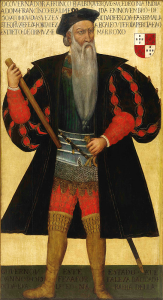 Wikimedia Afonso de Albuquerque.
Wikimedia Afonso de Albuquerque.
28. The Key West treasure
Shipwrecks are a great way to redistribute wealth, as it turns out.
In 1622, the Spanish ship Nuestra Senora de Atocha and a bunch of companion vessels were off the coast of Key West, on their way back to Spain with an enormous quantity of treasure in tow. Their journey was cut short by a hurricane, which plunged the ruined ships and their cargo into the Gulf of Mexico.
About $500 million dollars worth of treasure has already been recovered, but experts estimate there's still about $200 million on the ocean floor, ready for the salvaging.
 Image by Key West.
Image by Key West.
27. The Nazi gold of Lake Toplitz
In the closing months of WWII, the Nazis sunk a whole bunch of stuff into Lake Toplitz in Austria. What exactly they hid down there remains unknown because the cache is largely unrecovered, but most people believe there's a fortune to be found.
So why doesn't anyone go down and get it?
Logs and branches near the bottom of the lake make it difficult to see and dangerous to dive. Which means that the gold, diamonds, cash, art treasures, whatever the Germans hid down there... will likely remain hidden.
 Wikimedia Lake Toplitz.
Wikimedia Lake Toplitz.
26. The bayou boys
Jean and Pierre LaFitte were French pirates who plied their trade in the Gulf of Mexico in the early 19th century. Like good stereotypical pirates, they inevitably decided they needed to bury their treasure -- or so the story goes. There are supposedly two main burial sites, both near New Orleans: one in Lake Borgne, the other near the Old Spanish Trail.
 Wikimedia Jean LaFitte.
Wikimedia Jean LaFitte.
25. Due Dillinger
In 1934, John Dillinger, another of America's most storied outlaws, was at a lodge in Wisconsin with some of his criminal cronies. When the police foolishly shot three (innocent) men out front, the master crook realized he was surrounded.
But in true Dillinger fashion, he managed to escape the lodge. The trouble was he had about $200,000 in cash on him that he needed to jettison. So he buried it before he left the area.
Unfortunately for Dillinger, he was shot just a few months later, so he never got to retrieve his 200 large. So far, no one else has either.
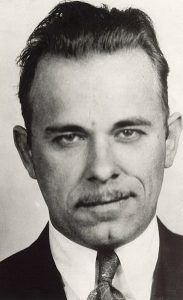 Wikimedia John Dillinger.
Wikimedia John Dillinger.
24. The Menorah of the Second Temple
A Menorah is a 7-pronged candle holder sacred in Jewish religious observances. One of the most sacred of all has been missing since 191 AD.
The Menorah from the Second Temple of Jerusalem was taken by the Romans in 70 AD and put on display in a temple in Rome. When that temple burned down, the Menorah was nowhere to be found. It may have been destroyed in the fire, but it also may have been stolen. Its fate is unknown, and it remains one of the most highly-sought missing religious artifacts in the world.
23. The scepter of Dagobert
The scepter of Dagobert is considered the oldest constituent part of the French crown jewels. It was made for the Frankish King Dagobert in the early 7th century, 22 inches of enameled gold with a hand clutching the world and a bird on top. It vanished from the Basilica of Saint-Denis in 1795, most likely stolen, and has never been found.
So if you find any mysterious golden scepters in your attic... don't throw them away.
22. The amber room
It was exactly what it sounds like: a whole room made of amber (fossilized tree sap, for those who haven't seen Jurassic Park).
The amber room was originally housed in a palace in Berlin, but it was later given to the visiting Russian Tsar Peter the Great as a gift. The room was this moved to the Catherine Palace near St. Petersburg. And there it remained until WWII.
The invading Nazis took a shine to the amber room in the former tsar's palace, so they looted it and returned it to Germany. However, it vanished from history instead. The whole collection included about 6 tons of amber.
The Russian government recreated the amber room in the Catherine Palace, and you can visit the restored version today. But the original has never been recovered and its fate remains unknown.
 Edgar El/Wikimedia The restored amber room.
Edgar El/Wikimedia The restored amber room.
21. Ivory Coast crown jewels
You might think crown jewels would be among the harder treasures to steal. They're the property of great monarchies, priceless in their valuation, and thus you would expect them to be closely guarded.
But Ivory Coast too has been robbed of some of its trappings of state. Back in 2011, more than $6 million worth of that country's crown jewels were stolen from a museum, along with other important artifacts. The crime remains unsolved, the treasure still tragically unaccounted for.
20. The lost Dutchman
It's not the man who's lost, but the mine. According to legend, there's a goldmine of uncommon wealth in the Superstition Mountains to the east of Phoenix, Arizona. Its discoverer, a German (not a Dutchman) named Jacob Waltz reportedly found the treasure trove but chose to keep its location secret. To this day, people still search for the mine. Some have even died in the pursuit.
The facts of the case are impossibly intertwined with myth and legend, making hard to assess the veracity of any claim about the lost mine. Perhaps it's real, or perhaps, like the mountains that supposedly hide it, it's pure superstition.
19. Peg Leg's lost mine
Tales of lost mines abound in the folklore and history of the old west. Another of the most famous is a gold mine supposedly discovered accidentally by the mountain man Thomas "Peg Leg" Smith in the hills of California. Peg Leg was short on time when he found this vein, however, so he took no more than a sample and went on his way.
He was never able to retrace his steps and find his fortune in those hills, but that hasn't stopped generations of adventurers from trying to finish his work.
18. Tu Duc's tomb
Tu Duc is generally considered to be the last Nguyễn Emperor of Vietnam, having died in 1883. However, despite the fact that he lived in modern times, his death remains shrouded in mystery.
Tu Duc built a grand mausoleum for himself, which tourists still visit to this day. However, his body was not interred there. He was instead quietly buried, with a bunch of his treasure, in an unknown location. In order to keep the site of his burial a secret, 200 people who helped lay him to rest were subsequently beheaded.
The secret has kept.
 LÊ TẤN LỘC/Wikimedia Tu Duc's "tomb."
LÊ TẤN LỘC/Wikimedia Tu Duc's "tomb."
17. The treasure of the Esperanza
You recall the treasure of Lima (#37)? Well, that's not the only missing treasure that was supposedly removed from Peru by the Spanish and then lost.
According to a survivor, the Esperanza sailed from Peru into the Pacific Ocean carrying 3 million pesos in silver and gold, as well as other valuable objects. However, the ship was badly damaged in a storm and taken by pirates, who offloaded the treasure and surviving seamen onto their own vessel.
Alas, the pirate ship too was struck by a storm, and marooned on the atoll of Palmyra in the middle of the Pacific. There, as one of the survivors noted in his letters, the pirates buried the bulk of the treasure before repairing their ship and sailing away, never to be heard from again.
If there really is such a treasured buried on Palmyra, it has yet to be found.
16. The treasure of the RMS Republic
It's time to talk about a famous ocean liner of the White Star shipping line that sank before WWI, taking endless mysteries with it into the depths. I'm talking, of course, about RMS Republic. (Sorry, no Kate Winslet or Leo in this story.)
The Republic didn't strike an iceberg, but another ship, and sunk in a heavy fog off Nantucket Island. Because of the new wireless technology, the crew were able to radio for help, saving most of the passengers' lives.
What was lost was the cargo, which was rumored to include vast sums in gold bound for Russia.
The wreckage was found in 1981, but no one has ever found the gold.
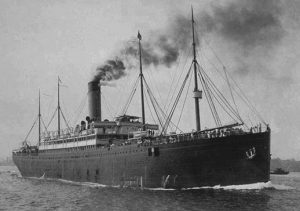 Wikimedia RMS Republic.
Wikimedia RMS Republic.
15. Treasures of the Copper Scroll
The Copper Scroll is the most peculiar of all the Dead Sea Scrolls, archaic as they are. Unlike the others, the Copper Scroll isn't written on papyrus but on, well, copper plates. It is also most unusual in that it lists the locations and estimated values of 63 lost treasures, but in rather cryptic language:
In the ruin that is in the valley of Acor, under
the steps, with the entrance at the East,
a distance of forty cubits: a strongbox of silver and its vessels
with a weight of seventeen talents.
No one is quite sure of the significance of these treasures or where they're buried. But if you have a taste for mystery (and gold), you could be the one to figure it out.
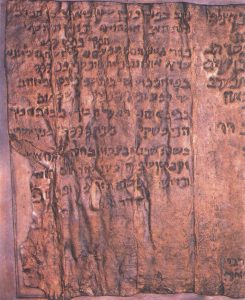 Wikimedia Part of the Copper Scroll.
Wikimedia Part of the Copper Scroll.
14. The golden owl
In 1993, French writer Max Valentin buried a golden owl somewhere in France. He wanted to create a treasure hunt for the ages, so he laid down 11 clues for where to find the owl, and promised a million francs to whomever found it.
26 years later, the owl remains buried.
13. The treasure of Victorio Peak
The legendary gold prospector Doc Noss claimed to have found a large quantity of gold in New Mexico's Victorio Peak. According to legend, this cache of treasure could have been hidden by Spanish missionaries centuries ago and forgotten.
Whether the treasure is really there or not remains an open question. But to date none has been recovered.
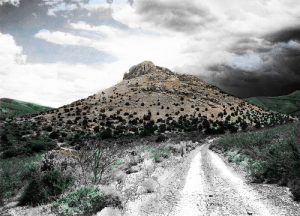 Wikimedia Victorio Peak.
Wikimedia Victorio Peak.
12. The missing Peking Man
Peking Man, or homo erectus pekinensis was a specimen of an early human subspecies that lived 500,000-750,000 years ago. His remains were discovered and displayed in China in the 1920s, but went missing during WWII. (Like many items on this list!) The fate of Peking Man is unknown, but fortunately he is not the only specimen of his kind.
11. John's jewels
Those crown jewels that aren't stolen can be lost or destroyed by the ruler's themselves.
This was the case with the crown jewels of King John of England, the unpopular king who was forced to sign Magna Carta in 1215 so he would stop pillaging his own lords' estates. John was campaigning against his own nobles (again), and tried to cross a river with his baggage train. It was a mistake; his luggage was swept away, along with his crown jewels. They have never been found.
 Wikimedia King John.
Wikimedia King John.
10. The gold of the Awa Maru
The Japanese liner Awa Maru was sunk by a torpedo in 1945 -- a fact which it has in common with many other Japanese ships. However, this one was said to be carrying more than $7 million worth of gold when it went down. The loot has never been recovered.
9. The confederate gold
With their Confederacy collapsing around them in 1865, the leaders of that doomed pseudo-state fled Virginia. But what became of all their riches? When Jefferson Davis was found and captured, he was ostensibly penniless. The same seemed to be true of other rebel leaders. Where was their cash? Where was their gold?
The lack of plunder that the Union armies found in the South has led generations of gold hunters and amateur historians to speculate that the Confederates must have somehow buried or otherwise hidden their treasures. If there is some big Confederate gold stash out there, it certainly hasn't been uncovered yet.
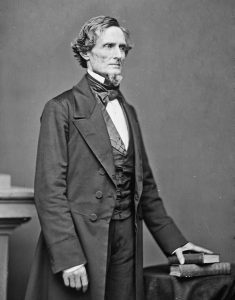 Wikimedia Jefferson Davis.
Wikimedia Jefferson Davis.
8. Dutch Schultz's millions
Dutch Schultz is another infamous American gangster who supposedly buried his ill-gotten gains for safekeeping, but then died before he could retrieve them. Schultz reportedly hid about $7 million worth of treasure in the Catskills Mountains of southeastern New York state, keeping the location a secret. The secret went to his grave with him, and despite considerable efforts no one has been able to dig up Dutch's trove.
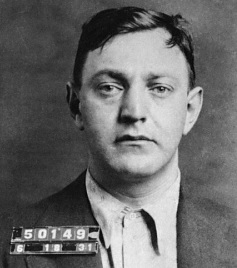 Wikimedia Dutch Schultz.
Wikimedia Dutch Schultz.
7. Love's Labour's Won
This is an odd treasure, but if anyone were to find it, it may prove the most valuable of any on this list.
It seems that Shakespeare wrote a play which has not passed down to us, called Love's Labour's Won. It may have been a sequel to a play of which we do have a copy called Love's Labour's Lost. Good or bad, whatever it is, it would surely fetch a pretty penny if you found it on your bookshelf.
 Wikimedia William Shakespeare.
Wikimedia William Shakespeare.
6. Elysium
In LA's Elysian Park, folks in the 1800s used to come to bury their treasures for safekeeping -- or so the story goes. So if you're in Los Angeles and have a metal detector... go see if you can dig up a piece of history for yourself.
 Fizzy+lifting/Wikimedia Elysian Park, LA.
Fizzy+lifting/Wikimedia Elysian Park, LA.
5. A dollar for a dime
In 1907, it's said that a wagon carrying a bunch of dimes crashed in Colorado's Black Canyon, the money scattered and lost in the rough terrain.
"Big whoop," I hear you say. "Who cares about a bunch of dimes?" Well, the dimes lost are among the rarest and most valuable in U.S. history, and could be worth millions today.
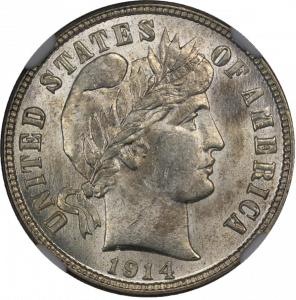 Wikimedia. A barber dime.
Wikimedia. A barber dime.
4. The Reynolds gang treasure
The Reynolds gang robbed stagecoaches and the like in Colorado in the 1860s, and apparently made a reasonably handsome living doing so. John Reynolds, the leader of the gang, told a friend where he had stashed their loot before he died -- somewhere around Mount Logan.
But when that friend later went in search of the treasure, he found that the passage of time had rendered John's instructions meaningless. He simply couldn't find the cash, which is still presumably out there somewhere.
3. Pierpont's treasure
Harry Pierpont was a bank robber and friend of John Dillinger who lived with his family on a farm in Leipsic, Ohio. He and his gang used to lay low on the property, and many people believe they hid their loot there as well -- or at least nearby.
After Pierpont's death, the farm was abandoned. Well, except for FBI agents and treasure hunters, all of them looking for any hint of the loot the bank robbers may have left behind.
2. Captain Kidd
Although Captain Kidd actually wasn't that big a deal as far as pirates go, his story has inspired much of our modern fascination with outlaws and buried treasure. And indeed, it seems that he did bury some treasure on Gardiners Island in New York. But it was uncovered by the governor and sent to England as evidence against Kidd, who was subsequently hanged for piracy.
Kidd's legend as a pirate may be far larger than his actual accomplishments, but try telling that to the sleuths and treasure hunters who continue to search for a piece of his legacy -- a gold piece, if possible.
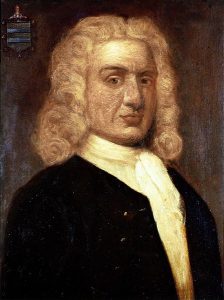 Wikimedia Captain William Kidd.
Wikimedia Captain William Kidd.
1. Montezuma's revenge
We all know the sad story of Montezuma. The last emperor of the Aztecs was held captive in his own capital by the Spanish conquistadors under Hernán Cortés and killed -- either by the Spanish or his own people, depending on whose account you believe.
But Montezuma may have had the last laugh. There is some evidence that Montezuma's treasures (and perhaps his remains) were marched north by survivors after the fall of the Aztecs and buried in southern Utah!
 Image by Montezuma.
Image by Montezuma.



